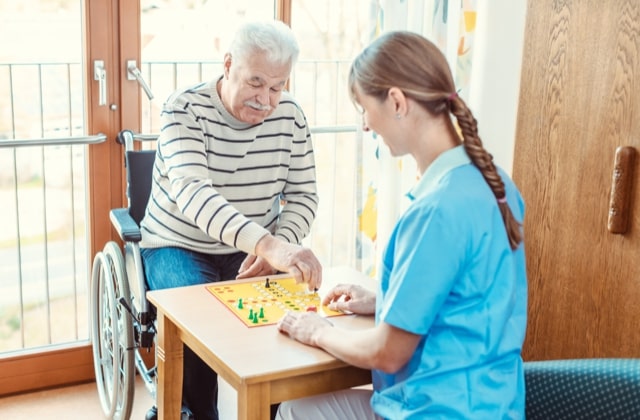12 Effective Brain Exercises for Stroke Recovery: A Road to Regain Your Cognitive Abilities

A stroke occurs when the blood supply to a part of the brain is interrupted or reduced, depriving brain tissue of oxygen and nutrients. This can lead to brain damage and result in a range of physical and cognitive impairments. Stroke recovery is a challenging journey that demands patience, determination, and consistency. One crucial aspect of this recovery process is retraining the brain to regain cognitive abilities that may have been affected.
In this blog post, we will discuss 12 brain exercises that can help stroke survivors in their recovery process. These activities are designed to improve cognitive functions such as memory, attention, problem-solving, and communication skills. Remember, always consult with your healthcare professional before starting any new exercises or rehabilitation routines.
1. Sudoku and Crossword Puzzles
Sudoku and crossword puzzles are classic brain exercises that can help stimulate cognitive functions in stroke survivors. They require focus, logic, and problem-solving skills, which can help enhance overall brain function.
2. Memory Games
Memory games, such as matching cards, can help improve short-term memory and concentration. You can start with a simple set of cards and gradually increase the difficulty as you progress in your recovery.
3. Jigsaw Puzzles
Jigsaw puzzles demand attention to detail, spatial awareness, and problem-solving skills. Assembling a puzzle helps to engage both the left and right hemispheres of the brain, making it an excellent activity for stroke recovery.
4. Reading and Listening to Audiobooks
Reading and listening to audiobooks are great ways to stimulate the brain and improve language skills. Start with short and simple texts, then gradually move on to more complex material as you become more comfortable.
5. Cooking
Cooking requires focus, planning, and organization. Following recipes, measuring ingredients, and executing multiple steps can help improve cognitive functions such as memory, attention, and problem-solving.
6. Art Therapy
Engaging in creative activities like painting, drawing, or sculpting can provide a therapeutic outlet for stroke survivors. Art therapy can help improve fine motor skills, hand-eye coordination, and cognitive functions.
7. Writing
Writing exercises, such as journaling or composing short stories, can help improve language skills and cognitive abilities. Begin with simple sentences and gradually progress to more complex writing tasks.
8. Music Therapy
Listening to or playing music can stimulate the brain and improve mood, memory, and attention. Choose soothing or uplifting tunes, and try learning a new instrument or singing along to your favorite songs.
9. Computer Games and Apps
There are numerous computer games and apps designed specifically for brain training and stroke recovery. These tools can help improve various cognitive functions such as memory, attention, and problem-solving.
10. Physical Exercise
Regular physical exercise not only benefits the body but also the brain. Aerobic exercises, such as walking or swimming, can help improve blood flow to the brain and promote cognitive recovery.
11. Meditation and Deep Breathing
Practicing meditation and deep breathing exercises can help reduce stress, improve focus, and increase mental clarity. Try setting aside 5-10 minutes each day for mindfulness practice.
12. Social Interaction
Engaging in conversations with friends and family members can help stroke survivors regain communication skills and stimulate cognitive functions. Practice active listening and engage in discussions on various topics to challenge your brain.

Recovering from a stroke is a challenging process, but with persistence and determination, it is possible to regain cognitive abilities. The 12 brain exercises listed above can help you improve various cognitive functions and enhance your overall brain health. Always consult with your healthcare professional before starting any new exercises or rehabilitation routines, and remember that consistency is key to achieving the best results.
